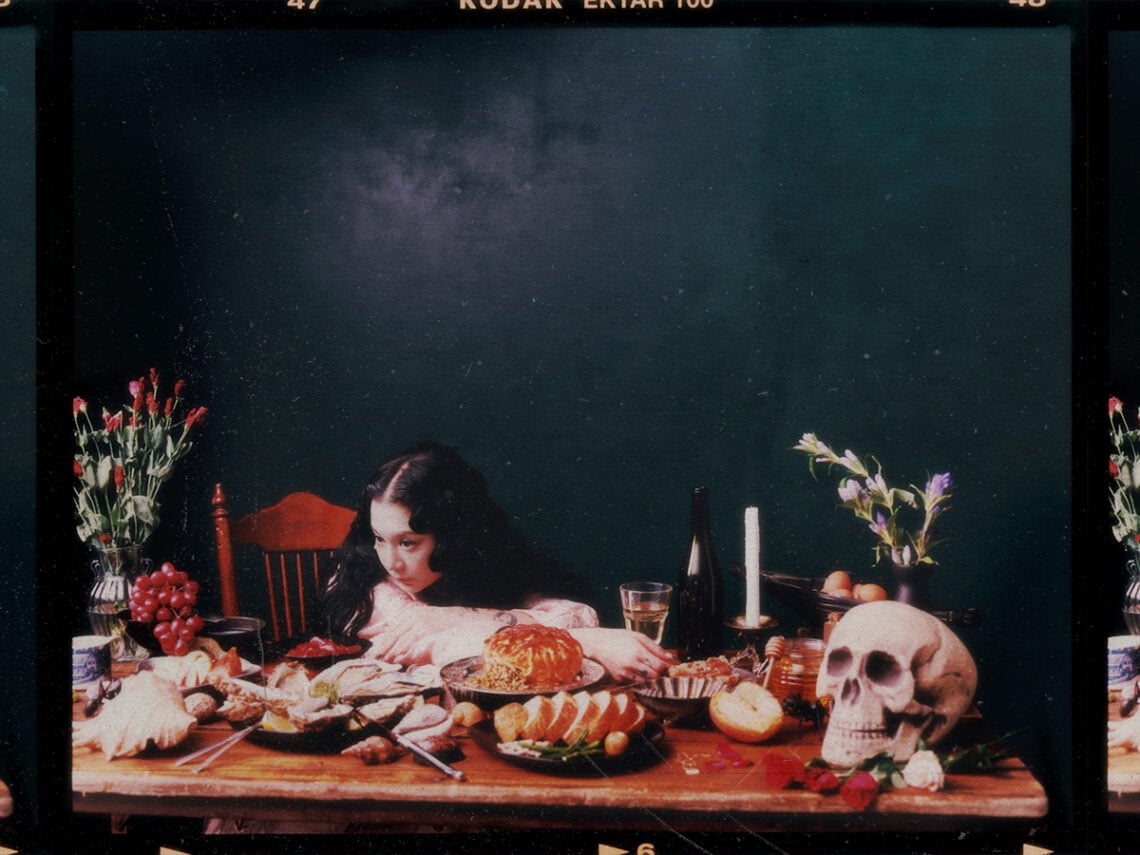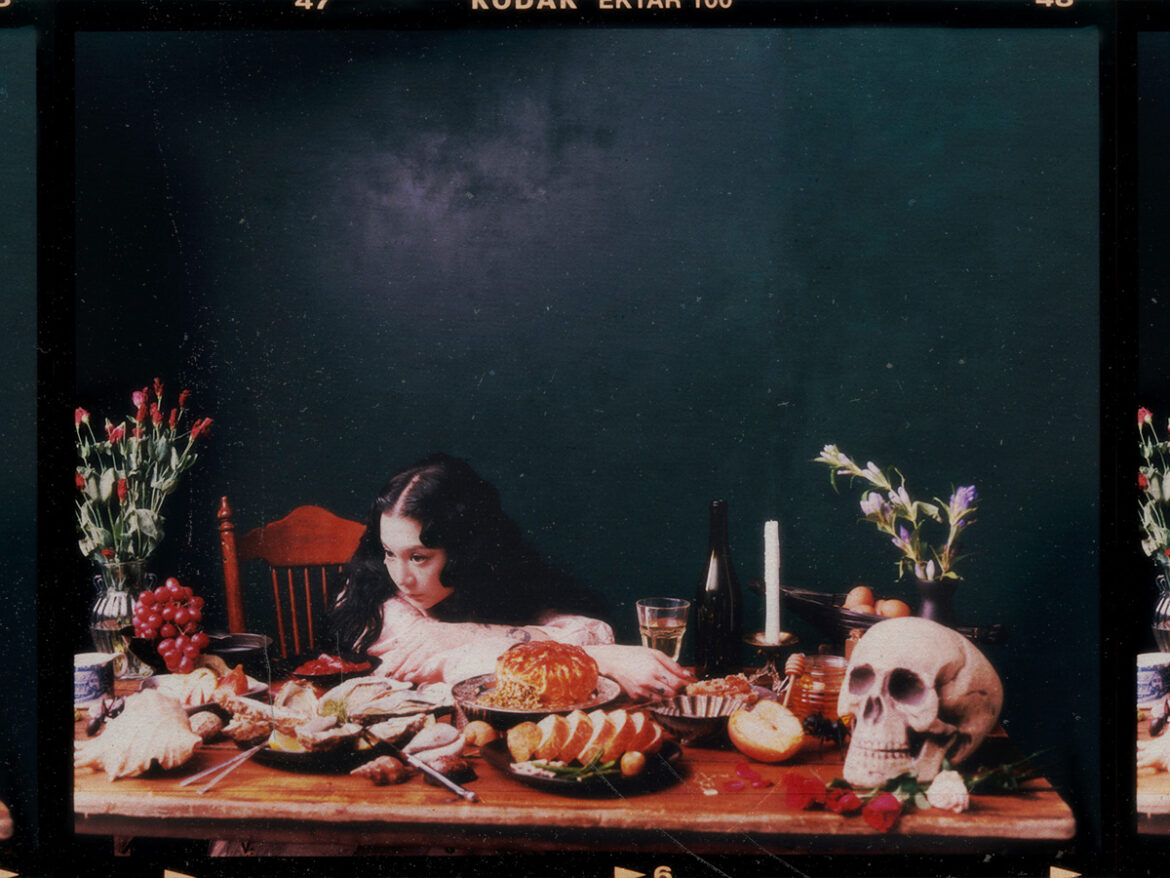
(Credit: Press)
Sat 12 April 2025 0:00, UK
Controlled death or controlled life? The idea of preservation is vital to the sound of Japanese Breakfast and their engagement with the art of music creation. It seems for the band that the foundational connection between food and music is acts of preservation forming the common thread. Everything has an expiration date and must come to an end; despite this, some amount of immortality may be possible, allowing some bits of memory to live on and find new life rather than instant death.
Art is perhaps the most impactful and resonant act of or attempt at preservation a person can engage in. Change and continuity may be tracked through it, and perspective and emotion may live on. There’s, of course, some music that exudes nostalgia. Take David Bowie’s ‘Heroes’, for instance—a song that carries an untouchable legacy unlike few others. It’s a track that is malleable to listeners’ experiences in a way that makes it evolutionary. Music is an avenue of promoting heritage, and this heritage is continued through the rebirth of sonic or lyrical references. Art inspires art, it’s been said, and it will be said again. More so, to this point, all great art is qualified based on its relationship to the past.
For Japanese Breakfast, it’s a more personal experience. Rather than taking inspiration from artists who came before them, they draw ideas from their own past. Michelle Zauner, the lead vocalist and author of the best-selling memoir Crying in H Mart, writes, “The culture we shared was active, effervescent in my gut and, in my genes, and I had to seize it, foster it so it did not die in me.”
She speaks to this idea of legacy, lending much of her purpose in creating the way she and her fellow band members do, to ensure generational memory doesn’t die with her. Backed by sparkly synths and eerie strings, Zauner’s airy vocals are given the agency to transcend time. Songs like ‘Picture Window’ and ‘Magic Mountain’ from the band’s latest album, For Melancholy Brunettes (& Sad Women), capture the spectral presence of memory.
“It exists in time and transforms. So it is not quite controlled death because it enjoys a new life altogether.”
Michelle Zauner
Musically, there’s an undeniable wistful remembrance characterising and breathing within the sounds crafted by Japanese Breakfast. Through their blend of dreamy lo-fi atmospheres with emotionally driven narratives, the band’s music is steeped in an otherworldly feel. Their music serves as a landscape for any emotion a listener might be experiencing in the moment to be explored, and a different one henceforth, with each listen.
The process of preservation is a bit gory. To begin, art allows the artist to take a moment or a morsel of themselves and prolong its existence, giving it the space and time it requires to grow beyond expectations. The development of a person is always in motion; each year, month, or week is never the same for one person. As such, when an artist creates something, their and others’ perceptions of art and emotions change as time takes its toll. Likewise, as far as making kimchi goes, when cabbage is set to ferment, it is quite literally saved from rotting and instead forced to evolve and become something new. Evolutions for both the cabbage and art can only be accomplished when they are preserved and allowed the time to fester.
Tried and true recipes propel modern creations into eternity, carrying on sentiments from the past. It could be said that preservation is an art form in itself, as it encourages new life while recognising the unchangeable fact of death. As Zauner says, “It exists in time and transforms. So it is not quite controlled death because it enjoys a new life altogether.” While she specifically states this in her novel when discussing kimchi, the sentiment remains the same as it relates to her music. Zauner’s creative genius resides in the tangible cultivation of nostalgic perpetuity through her engagement with acts of preservation, both musically and within literature.
Related Topics
Subscribe To The Far Out Newsletter


AloJapan.com